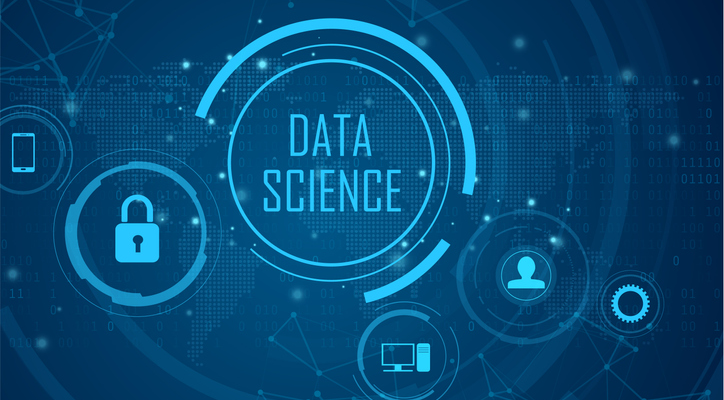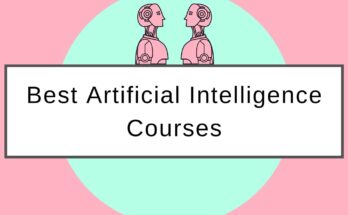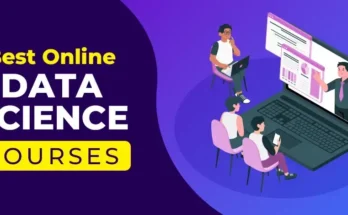The field of data science has emerged as one of the most sought-after and promising career paths. Data scientists are the modern-day alchemists, transforming raw data into valuable insights, predictions, and recommendations that drive businesses and innovations across various domains. Whether you’re a recent graduate, a working professional looking to change careers, or someone simply intrigued by the world of data, embarking on a journey to learn data science can be a game-changer. In this comprehensive guide, we’ll walk you through the exciting world of data science courses for beginners, addressing the who, what, why, and how of starting your data science journey.
Data science is a multidisciplinary field that combines statistics, computer science, and domain expertise to extract valuable insights and knowledge from data. It encompasses a wide range of techniques, tools, and methodologies, such as data analysis, machine learning, data visualization, and more. Data scientists work on complex data-driven problems, which can have a profound impact on decision-making, product development, and research.
In this article, we aim to provide a comprehensive overview of data science courses for beginners. We’ll address the fundamental questions regarding who should learn data science, why it’s essential, how to choose the right course, and what courses are available. Additionally, we’ll answer some frequently asked questions to help you make an informed decision about your data science education.
Why Learn Data Science?
High Demand for Data Scientists
The job market for data scientists is red hot. Organizations worldwide are collecting more data than ever, and they need skilled professionals who can analyze and interpret this information. Data science is not limited to a single industry; it’s used in healthcare, finance, marketing, technology, sports, and more. Consequently, there’s an ever-increasing demand for data scientists across various sectors.
Lucrative Salaries
The high demand for data scientists has translated into competitive salaries. Data scientists often enjoy above-average compensation packages, making it one of the most financially rewarding career choices. According to the Bureau of Labor Statistics, the median annual wage for computer and information research scientists (which includes data scientists) in the United States was $126,830 in May 2020.
Problem Solving and Innovation
Data science is all about solving real-world problems and driving innovation. By applying data-driven insights, you can make informed decisions, optimize processes, and create innovative products or services. If you enjoy tackling complex problems and making a tangible impact, data science is an exciting field to explore.
Diverse Career Opportunities
Data science is not just about one role. It offers a spectrum of career opportunities, including data analyst, machine learning engineer, data engineer, business analyst, and more. This diversity allows you to tailor your career to your interests and strengths.
Who Can Learn Data Science?
The beauty of data science is its inclusivity. Anyone with an analytical mindset and a passion for learning can delve into this field. Here are some common backgrounds that can benefit from learning data science:
Recent Graduates
If you’re a recent graduate or about to graduate from a degree in mathematics, statistics, computer science, engineering, or related fields, data science can be a natural progression for you. Many entry-level data science positions require a strong foundation in quantitative disciplines.
Working Professionals
Data science is not restricted to fresh graduates. Working professionals from various backgrounds, such as marketing, finance, healthcare, and more, can upskill or transition into data science. Your domain expertise can be a significant asset in data analysis and decision-making.
Career Changers
Data science welcomes career changers with open arms. If you’re looking to switch your career and explore the world of data science, many introductory courses are designed to accommodate your needs. These courses provide foundational knowledge and help you build the skills required for a data science career.
Curious Minds
You don’t need a formal background in science or technology to learn data science. If you have a curious mind, a passion for problem-solving, and the determination to learn, data science can be a rewarding pursuit, even if you’re starting from scratch.
Choosing the Right Data Science Course
Choosing the right data science course is a crucial step in your journey. The course you select should align with your goals, learning style, and availability. Here are some factors to consider when making this decision:
Online vs. On-Site
One of the first decisions to make is whether to pursue an online or on-site course. Online courses offer flexibility, allowing you to study at your own pace, which can be ideal for working professionals or those with busy schedules. On-site courses, on the other hand, provide a more structured learning environment and face-to-face interaction with instructors and peers.
Course Duration
Consider the time you can commit to learning data science. Courses vary in duration from a few weeks for bootcamps to several months for comprehensive online programs. Your time constraints and objectives should guide your choice.
Course Content
Review the course syllabus to ensure it covers the topics and skills you want to acquire. Data science courses typically cover statistics, programming languages (e.g., Python, R), data analysis, machine learning, data visualization, and more. Make sure the course aligns with your career goals.
Prerequisites
Check the prerequisites for the course you’re interested in. Some programs assume prior knowledge in statistics and programming, while others are designed for beginners. Choose a course that matches your current skill level.
Cost
Consider the cost of the course, including tuition, materials, and any additional fees. Online courses often offer a range of pricing options, from free courses to more expensive, in-depth programs. Ensure the course fits your budget.
Also Read: Free Online Data Science Courses
Top Data Science Courses for Beginners
Now, let’s explore some of the top data science courses for beginners, categorized into online platforms, university and college courses, and bootcamps.
Online Platforms
1. Coursera
- Courses: Coursera offers various data science courses and specializations in partnership with top universities and institutions. You can find beginner-friendly options such as “IBM Data Science” and “Google Data Analytics Professional Certificate.”
2. edX
- Courses: edX provides a selection of data science courses from renowned universities and organizations. Notable options include “Harvard’s Data Science MicroMasters” and “UC Berkeley’s Foundations of Data Science.”
3. Udemy
- Courses: Udemy hosts a wide range of data science courses. While the quality may vary, it’s a great platform to find affordable introductory courses on data science and its tools.
University and College Courses
1. University of Washington
- Course: The University of Washington offers a comprehensive “Data Science at Scale” program. It’s a part-time, online course designed for professionals, and it covers data analysis, machine learning, and more.
2. University of California, Berkeley
- Course: UC Berkeley’s “Data Science Undergraduate Program” is a full-time, on-site program ideal for those looking for a deep dive into data science with a university setting.
Bootcamps
1. General Assembly
- Course: General Assembly offers a “Data Science Immersive” bootcamp that covers the core concepts of data science and machine learning in a short period.
2. DataCamp
- Course: DataCamp specializes in data science and offers an array of interactive, hands-on courses and projects for beginners.
3. Flatiron School
- Course: The Flatiron School provides an immersive “Data Science Bootcamp” that focuses on practical skills and job readiness.
FAQs about Data Science Courses for Beginners
1. Is prior programming experience required to learn data science?
No, it’s not a strict requirement. While having some programming experience can be helpful, many beginner data science courses are designed for individuals with minimal to no programming knowledge.
2. Which programming language is best for data science?
Python is the most popular programming language in data science due to its extensive libraries for data analysis and machine learning. R is also widely used, particularly in academic and statistical settings.
3. Do I need a degree in data science to get a job in the field?
No, a formal degree in data science is not mandatory. Many data scientists have degrees in various fields, including mathematics, computer science, and engineering. What’s crucial is your skill set and ability to apply data science techniques.
4. Can I learn data science for free?
Yes, there are free resources available, such as online courses, tutorials, and open-source tools. While these resources can provide foundational knowledge, more comprehensive courses often come with a cost.
5. What’s the difference between a data science course and a data science bootcamp?
Data science courses typically offer a more comprehensive and structured curriculum, often spanning several months. Data science bootcamps are intensive, short-term programs designed to teach practical skills quickly. The choice depends on your learning style and objectives.
Conclusion
In this era of data, learning data science is a wise investment in your future. Whether you’re a recent graduate, a working professional, or a career changer, data science is a field that welcomes diverse backgrounds and perspectives. The demand for data scientists continues to grow, and the field offers a plethora of opportunities, lucrative salaries, and the chance to solve real-world problems.
When choosing a data science course, consider factors such as the format, duration, content, prerequisites, and cost to find the best fit for your needs. The top data science courses listed in this article, available on online platforms, universities, and bootcamps, offer a variety of options for beginners.
As you embark on your data science journey, remember that learning is an ongoing process. Stay curious, keep up with industry trends, and practice your skills. With dedication and the right education, you can unlock the doors to a rewarding and fulfilling career in data science.




